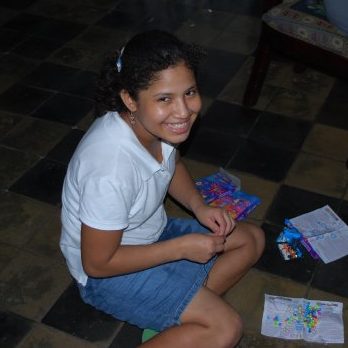 We currently have two families in Nicaragua adopting toddler aged waiting children who both have known additional needs. “Waiting children” are typically children over the age of 8 (both considered “healthy” and considered with medical needs) or children with additional medical needs of any age, including infants and toddlers. These are children who are not eligible to be matched with families currently waiting to be adopted because the waiting families were not open to or approved for the older ages of the children or their additional needs. Previously, Nicaragua did not have a waiting child program, and typically the children matched with our families did not have known or diagnosed additional needs. However, the procedures in Nicaragua have recently changed, as we are now seeing the country focus on matching these waiting children with families, as unfortunately, these children are the least likely to be adopted by Nicaraguan families.
We currently have two families in Nicaragua adopting toddler aged waiting children who both have known additional needs. “Waiting children” are typically children over the age of 8 (both considered “healthy” and considered with medical needs) or children with additional medical needs of any age, including infants and toddlers. These are children who are not eligible to be matched with families currently waiting to be adopted because the waiting families were not open to or approved for the older ages of the children or their additional needs. Previously, Nicaragua did not have a waiting child program, and typically the children matched with our families did not have known or diagnosed additional needs. However, the procedures in Nicaragua have recently changed, as we are now seeing the country focus on matching these waiting children with families, as unfortunately, these children are the least likely to be adopted by Nicaraguan families.
MLJ Adoptions has been working in Nicaragua since its inception. It is a country and program we love dearly. Nicaragua is where I fell in love with adoption work, and knew that adoption and child welfare would always be a part of my life. During my first trip to Nicaragua, I visited children’s homes for older children in need, and there were many older children in need of a permanent family. I remember the children from my first trip so vividly, even though it was many years ago now. I met many older children who resided in children’s homes.
For some time, we were seeing that relatively young Nicaraguan children without known medical needs were in need of families and were being matched with foreign families. However, over the course of the last year or so we have seen a shift in the program and the characteristics of children that the country seeks to match with foreign families. Nicaragua now is advocating for and matching older children and those with more moderate to severe additional needs.
Nicaragua has been in contact with our agency requesting that we try to help them find families for some of the older children and those with more severe needs. Unfortunately, we are not always able to help, because of the small number of registered families seeking to adopt children over 8 or those with more severe needs. The Nicaragua program is different than some of the other waiting child programs, in that only families with registered dossiers are able to move forward with the children because in Nicaragua, once a child is identified, they quickly travel to Nicaragua for an adaptation period. Because of the current shift in focus in Nicaragua, we will now be accepting new applicants open to children 8 and older as well as families open to children with more moderate to severe additional needs. Families interested in joining the Nicaragua program should set up an initial consultation free of charge to learn more about what medical needs we would ask them to be open to; these needs are based on the recent matches that we have seen and information provided to our team about children who are currently waiting for their forever families.
We look forward to continuing to support the Nicaraguan government, as they seek to focus on matching older children and those with additional needs.
